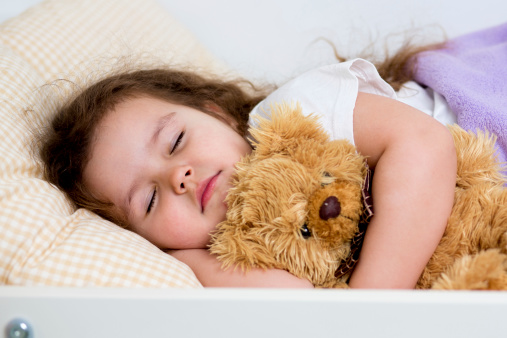 New research from University College London published in the journal Pediatrics, suggests that there is a connection between the time a child goes to sleep and their behavior. Specifically, children who go to bed at the same time every night are more likely to be well-behaved when compared to children who go to bed at a different time every night. Professor Yvonne Kelly says that children without a fixed bed time experienced a feeling in both mind and body similar to “jet lag.”
New research from University College London published in the journal Pediatrics, suggests that there is a connection between the time a child goes to sleep and their behavior. Specifically, children who go to bed at the same time every night are more likely to be well-behaved when compared to children who go to bed at a different time every night. Professor Yvonne Kelly says that children without a fixed bed time experienced a feeling in both mind and body similar to “jet lag.”
The study focused on three age groups: three, five, and seven year olds, and was comprised of data collected from over 10,000 children. Researchers say that varying bed times leads to sleep deprivation and can have a negative impact on a child’s brain resulting in behavioral problems such as:
-
Hyperactivity
-
Conduct Problems
-
Problems with Peers
-
Emotional Difficulties
The longer a child has an irregular bedtime schedule, the worse these problems become. However, the effects of sleep deprivation on children are not permanent. In fact, as soon as a child starts going to bed at the same time every night consistently, the behavioral problems gradually improve. Good sleep patterns are important to the proper development of a child’s brain, and Professor Kelly suggests that health care providers inquire about child bed times as part of regular visits. Try and make sure that your child goes to bed regularly sometime between 7:30 and 8:30 at the latest. Negative effects were also observed in children who regularly went to sleep after 9pm as well.
For more information on sleep, please check out the blog articles on sleep hygiene, exercise and sleep, and using yoga to sleep better. If you have any questions about sleep, insomnia, or any other mental health issues, please get in touch with Rebecca Ginder, sleep therapy specialist, at (561) 450-5255.




